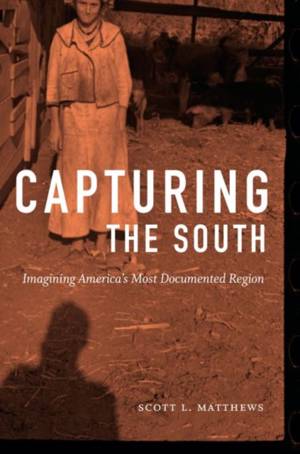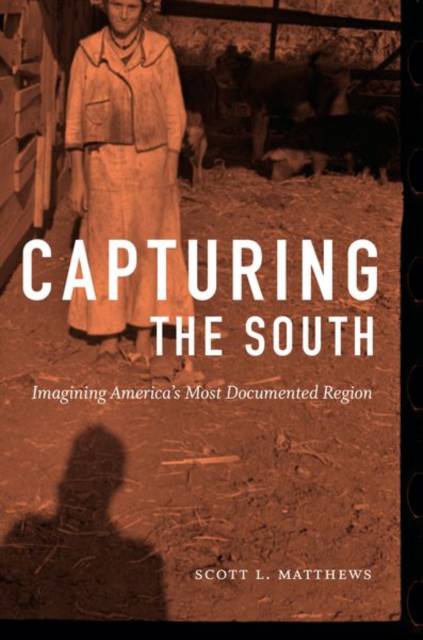
- Afhalen na 1 uur in een winkel met voorraad
- Gratis thuislevering in België vanaf € 30
- Ruim aanbod met 7 miljoen producten
- Afhalen na 1 uur in een winkel met voorraad
- Gratis thuislevering in België vanaf € 30
- Ruim aanbod met 7 miljoen producten
Zoeken
€ 49,95
+ 99 punten
Uitvoering
Omschrijving
In his expansive history of documentary work in the South during the twentieth century, Scott L. Matthews examines the motivations and methodologies of several pivotal documentarians, including sociologist Howard Odum, photographers Jack Delano and Danny Lyon, and music ethnographer John Cohen. Their work salvaged and celebrated folk cultures threatened by modernization or strived to reveal and reform problems linked to the region's racial caste system and exploitative agricultural economy.
Images of alluring primitivism and troubling pathology often blurred together, neutralizing the aims of documentary work carried out in the name of reform during the Progressive era, New Deal, and civil rights movement. Black and white southerners in turn often resisted documentarians' attempts to turn their private lives into public symbols. The accumulation of these influential and, occasionally, controversial documentary images created an enduring, complex, and sometimes self-defeating mythology about the South that persists into the twenty-first century.
Images of alluring primitivism and troubling pathology often blurred together, neutralizing the aims of documentary work carried out in the name of reform during the Progressive era, New Deal, and civil rights movement. Black and white southerners in turn often resisted documentarians' attempts to turn their private lives into public symbols. The accumulation of these influential and, occasionally, controversial documentary images created an enduring, complex, and sometimes self-defeating mythology about the South that persists into the twenty-first century.
Specificaties
Betrokkenen
- Auteur(s):
- Uitgeverij:
Inhoud
- Aantal bladzijden:
- 328
- Taal:
- Engels
- Reeks:
Eigenschappen
- Productcode (EAN):
- 9781469646459
- Verschijningsdatum:
- 19/11/2018
- Uitvoering:
- Paperback
- Formaat:
- Trade paperback (VS)
- Afmetingen:
- 156 mm x 234 mm
- Gewicht:
- 508 g

Alleen bij Standaard Boekhandel
+ 99 punten op je klantenkaart van Standaard Boekhandel
Beoordelingen
We publiceren alleen reviews die voldoen aan de voorwaarden voor reviews. Bekijk onze voorwaarden voor reviews.











